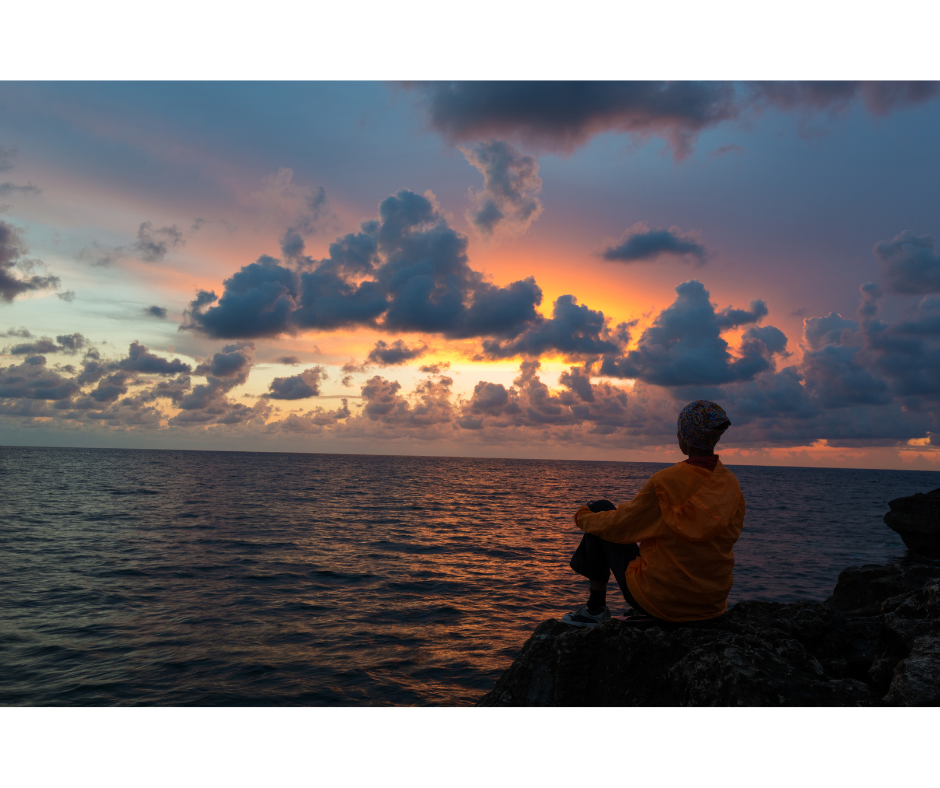Reflections on Soul of Leadership

If, in moving through your life, you find yourself lost, go back to the last place where you knew who you were, and what you were doing, and start from there.
-Bernice Johnson Reagon
For decades now, I’ve felt I had a pretty clear understanding of my purpose in life thanks largely to two now deceased Dagara spiritual teachers, Malidoma Somé and Sobonfu Somé. They both shared many tools for naming your purpose well enough that you knew when you were off it.
In terms of work, my anti-racism and DEI work with organizations appeared to be very “on purpose” for me. But by 2018, that had changed a bit, and I really started questioning what I was seeing and doing and whether it was effective. Then, just before the pandemic shutdown, I started working on an audit of the anti-racism work of a national faith-based organization. It was fascinating to listen to different people across the country discuss their commitment, their questions, and their hopes and fears as people doing anti-racism work from a faith perspective. But I wasn’t prepared for the difference in the interviews before and after the murder of George Floyd.
After that event, people of color that I interviewed were much more direct about their pain and exasperation. They shared their day-to-day experiences without excuses. They spoke of micro and macro aggressions it seemed they had been willing to overlook previously for the sake of getting work done or preserving relationships. Generations-long stories of enslavement and migration, internment camps and reservations, policing and extraction were no longer hidden but invaded present day understandings.
At the same time, white people were noticeably more emotional in their sharing, even to the point of tears. They recounted their efforts to make their predominantly white organization welcoming to people of color. Some had family members who were people of color, and they were seeing racial encounters as more than interpersonal interactions. Some seemed shocked to realize that seeming revolutions they’d lived through were not simply about “integration.” Others — who understood through many years of doing “the work,” long before witnessing what the pandemic revealed — grew increasingly angry and frustrated.
That year — 2020 — saw an unraveling of my clarity about “my work,” about what I was doing and why. The pandemic years brought pushback on anything resembling diversity work (let alone anti-racism). They also revealed other fissures: the violent stresses of living in the wealth gap day-to-day, violent political polarization, and continued fights by indigenous people to honor their land and way of being in relationship to it even as climate realities were begging us to pay attention. Instead of dealing with these issues, we were marching into more wars with each other! It would have been funny if it wasn’t so pathetic and scary. On a personal level, I experienced deaths that could not be properly mourned, including the tragic and traumatic death of a very dear and precious friend a month before my 70th birthday –- the first birthday in my life that actually seemed monumental! It was too much and I felt lost.
So, when my sister-friend Sandras Barnes invited me to a Soul of Leadership information session last May, she must have sensed that I had lost my way. She told me how much she treasured Shalem but never tried to talk me into it. In fact, in sharing her own love of Shalem she talked herself into joining the same cohort! That was the icing on the cake.
What I have found in SOL is a cross-generational community of seekers who were just as committed as I was to reconnecting to the soul of their leadership. Between Margaret Benefiel’s skillful curation of contemplative spaces and Debora Jackson’s loving and clarifying spiritual direction and teaching, we have had powerful, wise, and compassionate guidance reflected back to ourselves and each other.
I haven’t figured it all out yet, but I am clear a little over halfway through the program that remembering who I am and what I’m doing means putting Spirit, putting God, at the center of my work again. In my work that means learning to better use anti-racism, or DEI, to encourage a balance between generative conflict or critical consciousness and gentle and loving inquiry of ourselves and each other in ways that acknowledge our fear, make a place for our rage and tend our grief. But in SOL itself, my work is just to be with it all. To find solitude in community*. The poet Adrienne Rich once wrote, “there must be those among whom we can sit down and weep and still be counted as warriors.” For me, SOL has been a place for doing just that.
*a phrase taken from Courage and Renewal work based on the writing of Parker Palmer

Thank you for this beautiful, inspiring article. The effects of Covid on our lives, our work and leadership is still unfolding. How precious to have a community to reflect with, cry with, discern with as we step into the unknown path ahead.
Thank you Donna for your perspectives! SOL in ‘21 was pivotal in my DEI reckoning journey. The program is a powerful container. Peace and Blessings!
Thank you, Donna, for your heart-felt personal observations about the “unraveling” in your life. I too have seen some very troubling long-term trends not only in the US, but also in many other parts of the world. Trends that have only accelerated in response to Covid: more anger/less patience, more violence/less compassion, more political polarization/no willingness to compromise. The list goes on. The challenge is always to focus our efforts on loving others and avoiding that ever-present black hole of self-absorption.